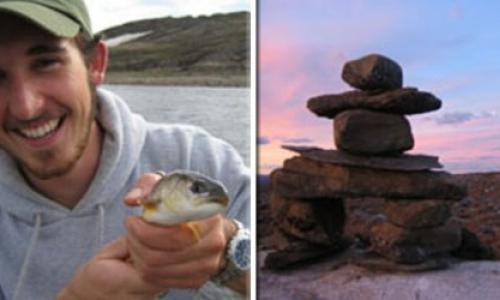
1. It’s not all about research, lab work, and publishing papers
Most aspiring science students dream of landing a research-based co-op position in hopes of poring over academic papers, honing their skills in top-secret government laboratories, and getting published in The Lancet by the end of their 8-month extended term. This is great – if you plan on spending the rest of your days in a lab.
Often, in research and lab work, clear goals are set with precise deadlines which results in minimal interaction with co-workers. As such, there is added emphasis on hard, technical skills. However, after graduation, you may find that many employers are looking for candidates who not only have strong technical abilities but also possess some soft skills. In most workplaces, successful candidates need to demonstrate their ability to function under multiple deadlines, gauge the atmosphere of a room, and improvise with the changing needs of the work environment. Your flexibility under these circumstances will be a valuable asset to the company.
2. There is no perfect co-op position
Right now, you’re probably hoping to land a work term with high-pay, minimal commute/relocation, and possibility of employment after graduation. If you manage to achieve this trifecta, congratulations! However, a rewarding co-op experience does not rely just on these characteristics.
Furthermore, the value of your work term is not determined by how good “Research Analyst at Some Big Company” looks on your resume. Rather, the most worthwhile experience is one that furthers your personal growth, enlarges your worldview, and challenges your perspectives. Cliché, right? No, really. Along the way, you gain long-lasting industry connections who may write groundbreaking reference letters for you, refer you for an internal job posting, or even end up working for you one day! Maybe.
3. Every other co-op applicant is as clueless as you are
That’s right, you’re not the only one nervous about the interview for the Risk Analyst position at the Bank of Money. The honours statistics student with three terms of RA experience and the Sauder kid with a $30 million simulated P&L are both sweating too. Co-op interviewers give all students a fair chance to demonstrate their abilities whether they have relevant work experience or not. Demonstrate your transferable skills, enthusiasm to learn, and ability to pick up new ideas.
Given that you do sufficient research on the position, prepare answers to situational questions, and brush up on industry news, you should do no worse than any other candidate. At a minimum, know the name of the company’s CEO – and maybe their credit card number. Also, it might be a good idea to memorize your timetables.
4. What you don’t say speaks volumes. Restrain yourself.
You’re not the first student who can mentally integrate by parts or talk about how you resolved a conflict with your previous manager. All too often, candidates answer simple questions with long-winded stories when a sentence or two would have sufficed. Keep in mind that the interviewer does not want to hear you ramble on about all of your great achievements, nor do they seek to make an assessment solely based on your technical abilities.
Really, the employer is hoping to have an honest conversation with you and gauge your ability to mesh with the social atmosphere of the team. As such, when asked a question you don’t know how to answer, admit so honestly, and simply follow up with a sentence on how you would go about figuring this out. Please don’t pretend or “fake it ‘till you make it”. Employers see right through that, which destroys your trustworthiness and makes you look plain awkward.
5. It’s normal to not hear back from interviewers
Keep in touch with your interviewer by sending a quick thank-you email after the interview – but that’s it! Unless the recruiting manager reaches out for further communication, do not rush to inquire about the status of the application or continue to show your fervour for the position. You’ve done your part; the performance is over – you gave it your all and everything is on the table already. Good job.
The hiring process – especially for larger companies – usually involves jumping through many bureaucratic hoops, meetings with HR etc. This generally lengthens the time required to get back to the candidates. In these situations, the adage “hope for the best, prepare for the worst” often comes in handy.
Or it could just mean that they chose to hire another student. That’s OK – it’s not the end of the world. SFU Counselling Services is open Monday to Friday, 9:00 am to 4:30 pm.
Anyway, that’s it! You are now average, or a little bit better, I don’t know. Sounds like pretty good odds to me. Trust me, or don’t, I’m just another average science co-op student.
Beyond the Blog
-
To learn more about co-op opportunities for Faculty of Science students visit the Science Co-op homepage.













